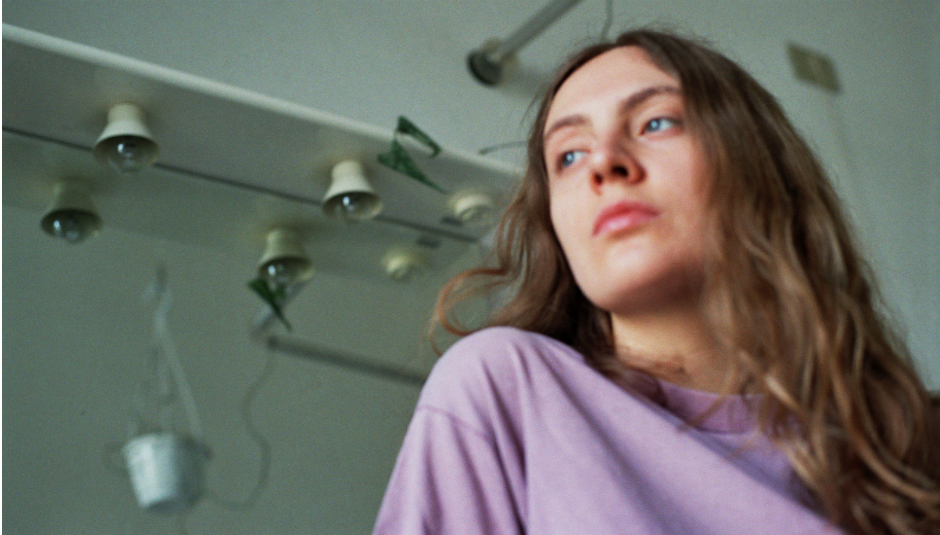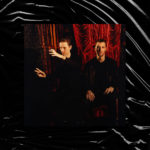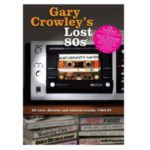Exploration lies at the heart of the work of Italian artist Adele Nigro aka Any Other. Whether it is navigating the deeply personal narratives of her life or possibilities of the folk format in her music, everything is laid bare and presented with a free-flowing abandonment.
Her second album Two, Geography maps out the ‘geography’ of a lover’s body, a place that then becomes home, from her personal perspective. The music ebbs and flows in much the same way a relationship does with soothing lulls and spiky, visceral points of angst. Nigro’s poetic laments often feel at breaking point, delivered with strained emotion.
There’s much to love on this record; the quirky narrative language akin to Regina Spektor, the off-kilter guitar work, the wrought melodies of Americana with a classic singer-songwriter edge, not quite fitting together but somehow forming a unified work. The fractured nature of Two, Geography might deter some listeners but for those who delve into its depths, there is much to explore and discover.
Despite her Italian heritage, Any Other is a ‘world’ artist, where that geographic base means little to the art she produces. The sounds don’t call on Italy, as such, and all songs are sung in English. For the English listener, this might explain why she sounds so familiar but also out of step with the expected.
Having just turned heads on her first UK tour, I spoke to Any Other to get an insight into the fascinating artist who should put Italian indie on the UK radar:
What do people need to know about you?
Oh, this is a difficult question. I think I’m the kind of musician who just wants to keep growing and learning new things, and this reflects in what I do and how I compose music.
How would you describe your sound?
I think it’s generally pretty warm and dry, with folk and jazz influences, but it can also be frantic and a little bit weird. I guess it’s like a place of intersections, a crossroad.
You’re from Italy but would you characterise yourself as an Italian artist?
Yes and no. I think it’s important to underline the fact that I don’t come from the Anglosphere, because generally-speaking the indie music industry is dominated by artists who do. So yeah, I’m an Italian artist. At the same time, what I do doesn’t fit in the Italian music scene, at the moment, which makes me feel a little bit out of it.
How has being from Verona and the move to Milan shaped your artistic output?
I’ve never really felt my roots were in Verona because no one in my family is actually from there. I definitely grew a desire for going away though, because politically speaking Verona is really conservative and fascist. I needed to go away, so Milan felt like a haven and it really was. It made me get in touch with a lot of different artists and people in general. It’s very dynamic and stimulating here.
Is it a healthy situation for bands in Italy right now?
Not that much. I think people are generally interested in pop solo artists, so it isn’t a good moment for any musician who’s not a pop solo artist. At the same time, there are a lot of active great musicians who keep writing, composing and performing – it’s just they’re not pop or mainstream, so you need to look for them.
Who in Italian music should I be aware of?
I’ll give you three names. Laura Agnusdei, an excellent sax player. She releases music both on her own and with other people as a session musician. She also played bari saxophone on my record and occasionally performs with me live.
72-HOUR POST FIGHT is an amazing band who mixes together jazz, hip-hop beats and electronic. They have an album out in January and they’re really, really amazing and Hit-Kunle is the band of Folake Oladun, an amazing musician who I shared the stage with some years ago. She writes groovy, catchy songs and she’s so good at guitar playing.
Has singing in English opened more doors for you?
It did. I started touring abroad pretty soon, which is definitely uncommon for Italian artists and led me to a lot of the things that I’m doing at the moment.
You’ve just toured the UK – how was that?
It was really, really nice! It was my first headlining UK tour and I was definitely excited. The shows were great, people had amazing reactions to the songs. Everyone was really respectful!
With the politics in Europe and the UK right now do you feel your world getting smaller and it might be harder to break over here?
I’ve been thinking about it, yeah. It could be harder in the future because of bureaucracy, immigration laws constantly changing, work permits and stuff. But I’m also aware of the fact that I’m a white, European person, and everything’s generally easier for white people so I would say I’m worried it could be harder, but I know it could be still very possible.
There’s something disjointed in the sound of the music on this album – do you think this off-kilter sound reflects the mood of the album?
I think it reflects myself as a person. I feel like I have different identities within me, but I don’t see it as a problem (anymore). Consequentially, the sound can be soft, warm, but also harsh, treble-ish. In my head, everything in the record is coherent at the core, but then shows itself in different ways aesthetically speaking.
This album is deeply personal, does it matter if listeners relate to it, or is it a simple cathartic exercise?
Both, according to different moments of making music. I would say, the first step is: I need to do it, so I do it. It’s, as you said, a cathartic exercise. If I didn’t need it, I wouldn’t do it, whether it is writing lyrics or composing just for instruments. Then there’s a second stage, which is releasing a record. When you do it, the music it’s not yours anymore, it’s anybody’s. And it simply feels good when people relate to it. It means you’re not alone and they’re not alone.
How comfortable do you feel knowing something so personal and reflective on yourself is out in the world?
I have to be honest, sometimes it’s weird, but it’s also just partial. I write about my personal experiences, but even if I give examples or I say things directly, I still keep a lot to myself. I’m not 100% explicit, that wouldn’t feel right to me and would turn the record from being true to being pornographic.
What influenced the sound of this album?
I’ve been listening to different stuff and studying a lot while making this record. I wanted to make an album with songs and melodies, while also writing the arrangements as if songs and melodies weren’t there. As I said before, I’m a fan of intersections – so I really like artists like Julia Holter, Jim O’Rourke or Mitski: they have really clear and present personalities, but you just can’t put them in a box. Also, I’m a multi-instrumentalist (I play both guitar and saxophone), and I guess this was part of where the influence comes from because you need to think about music and composition from different spots.
Do you have any strange tour stories?
Actually, no! I think I’m the only person on this planet who hasn’t.
What’s next?
I am going to play Eurosonic in January, which I’m really excited about, and I’m gonna be touring the next year. I’m working on other people’s records at the moment, but also starting to write down some ideas for my next release. I’m excited!
Catch An Other on tour:
07/05/2019 – BE Brussels – AB Salon
08/05/2019 – UK London – The Victoria
09-11/05/2019 – UK Brighton – The Great Escape
12/05/2019 – NL Utrecht – Bouwerij de Kromme
16/05/2019 – DK Aalborg – Huset
17/05/2019 – DK Aarhus – Tape
18/05/2019 – DK Copenhagen – Vega
21/05/2019 – DE Mainz Schon – Schon
22/05/2019 – DE Berlin – Bergfest at FluxFM




